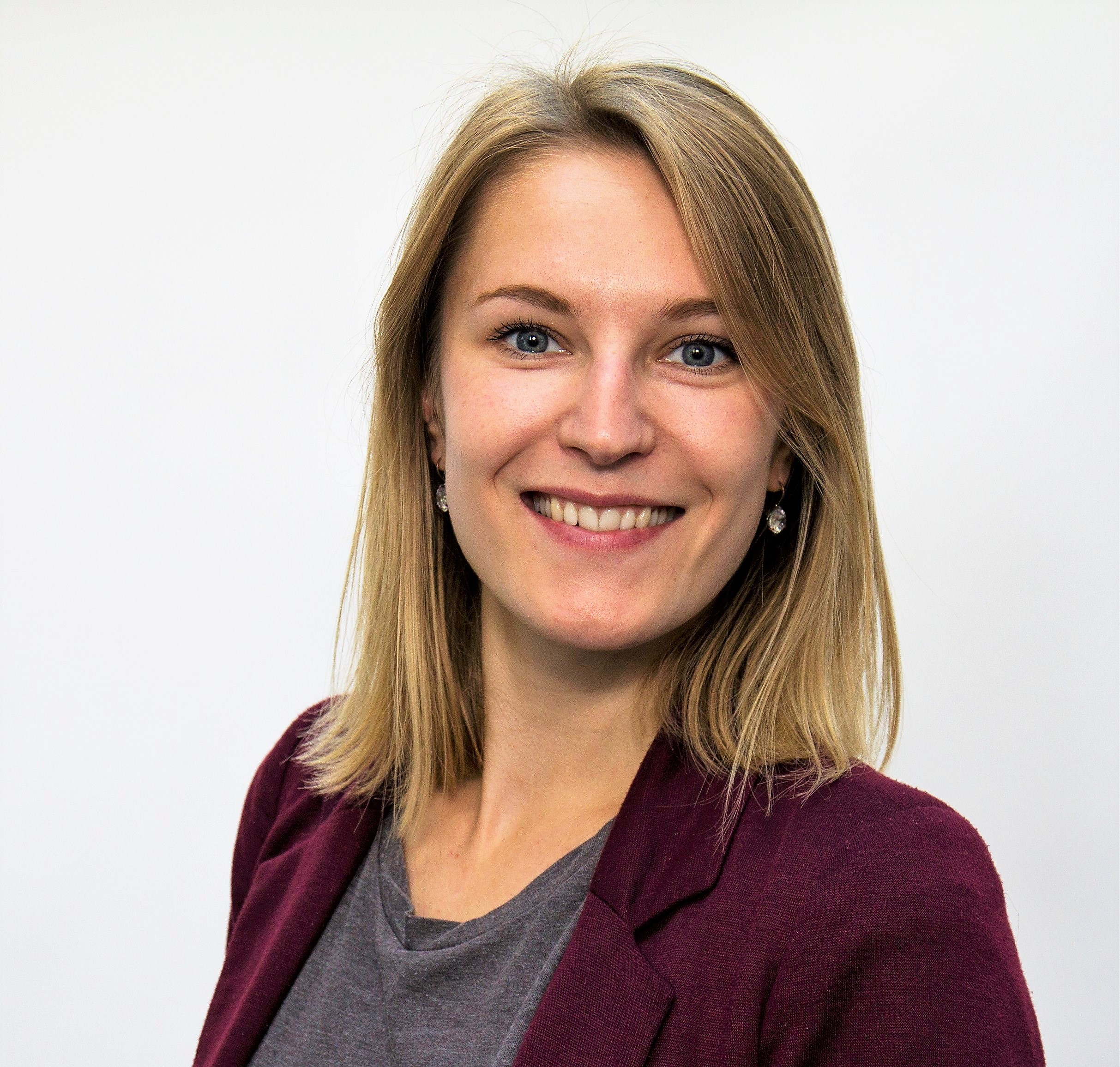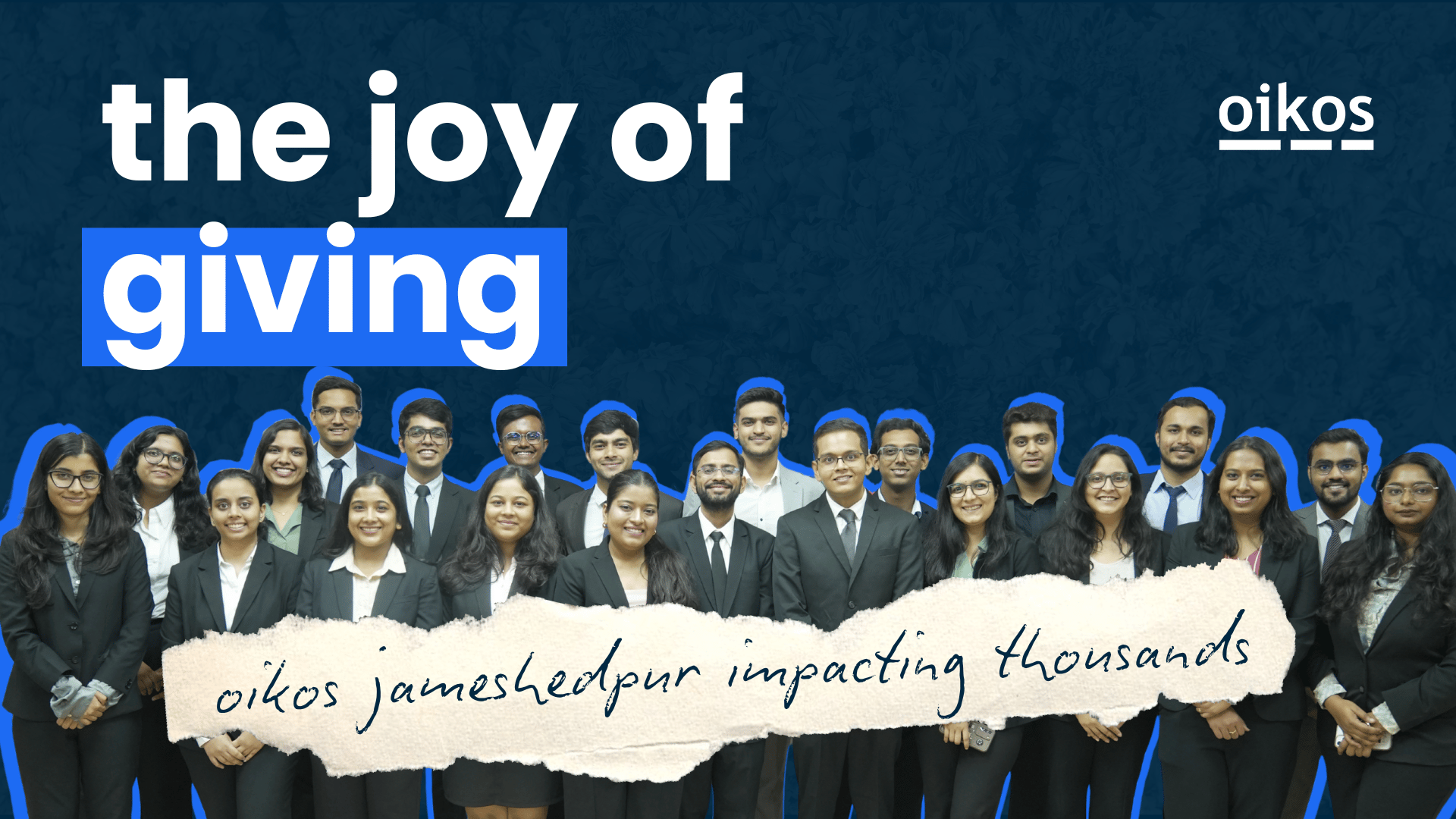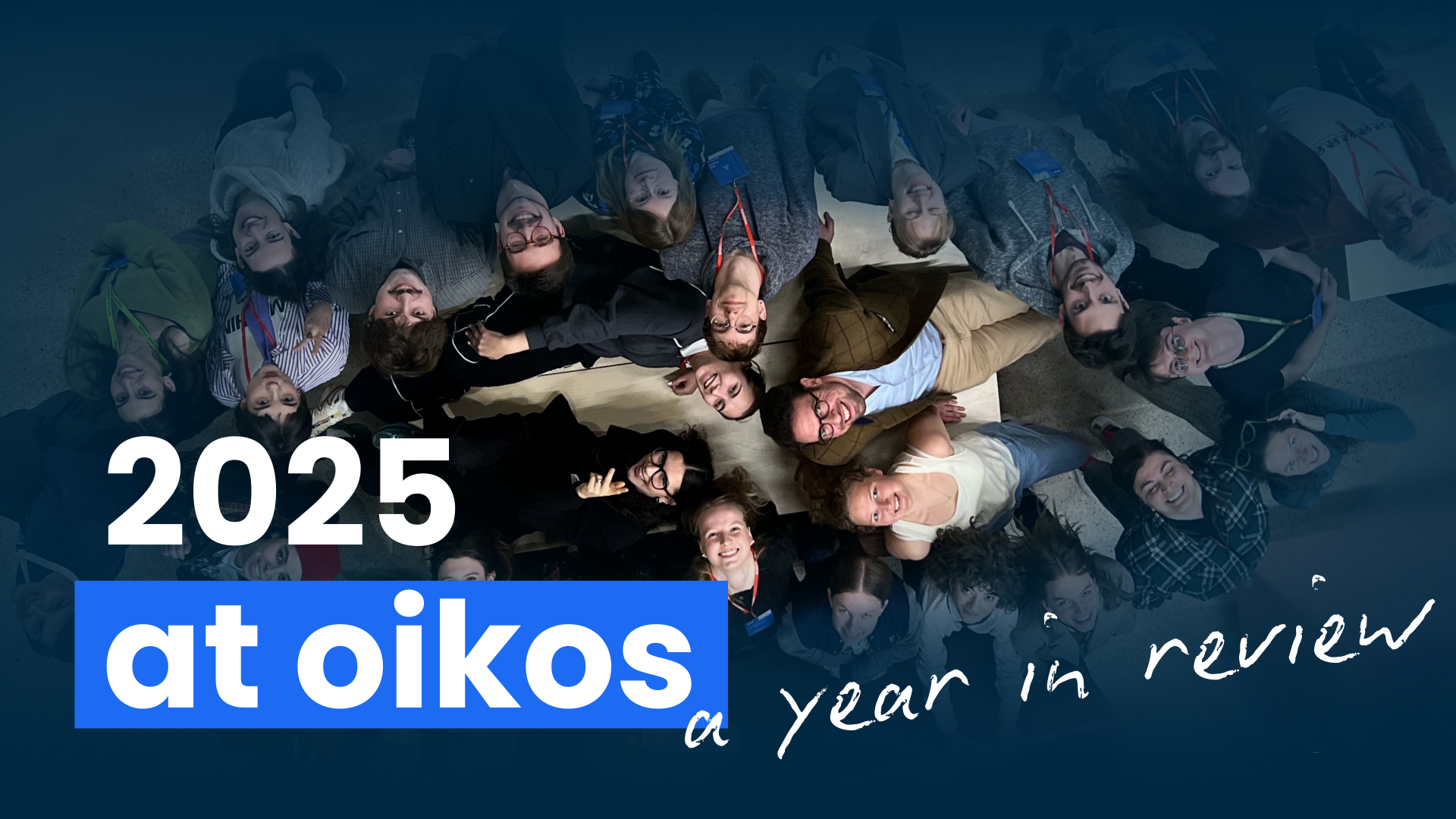
Johanna Zimmermann is a board member of the oikos chapter in Copenhagen. Originally from Marburg, Germany, she studies MSc in Business and Development Studies at Copenhagen Business School (CBS) and works as a student assistant at Ørrsted, the Danish renewable energy company. At oikos Copenhagen, she leads curricular projects and advocates for the integration of sustainability into education. Johanna shared her oikos story and discussed her work for curricular change with us.
When I joined oikos a year ago, I had just started my MSc in Business and Development Studies at Copenhagen Business School. Back then I already knew I wanted to learn as much as possible about sustainable business models and especially about my possibilities to contribute to a (business) world that centers around profitable, environmentally friendly, and socially beneficial solutions. At CBS I realized two things – 1. More and more companies are employing graduates with expertise in circular economic thinking and other theories that can be used to solve the most urgent problems our global community is facing but 2. this demand for graduates cannot be met by the standard study programmes at CBS. There are some electives dedicated to sustainability, but I believe that we have to integrate sustainability approaches into everything we are teaching and have to stop thinking of it as something that is merely additional. So I decided to engage in what was called the “Education team” in our oikos chapter, which aimed at changing education at CBS so that it includes more content on sustainability. In the last twelve months, I worked on giving this highly ambitious goal a structured project approach so that we can step by step get closer to reaching it.
Now, one year later, I am a board member of the Copenhagen chapter as a Head of Curricular Projects, and I am very proud of our new pilot project “Curricular Transformation”. In this project, we will work with study boards (the decisive body for curriculum design and approval) that consist of student representatives, professors, and directors. First of all, we will gather data from students, professors, and companies to figure out what is exactly the baseline and ideal for sustainability in their study programme. Then, we will compile material such as state-of-the-art case studies on sustainability, latest publications etc. and provide it to the study boards in order for them to decide what can be integrated. Ultimately, we will support them with innovating the curricula accordingly.
This requires a strong network within CBS and a lot of patience. Everyone who is familiar with a theory of change knows that these kinds of bottom-up driven structural changes usually encounter a lot of resistance. However, it seems like we are making a general momentum and paving the way towards sustainability at CBS and beyond. Just a few days ago, I joined a task force of highly motivated professors, who got really excited about the Curricular Transformation project and expressed their interest in supporting us. And indeed, who would be a better initiator of curriculum change than students who know what they want and need to learn in order to be able to realize their career goals and at the same time create a sustainable future for the generations ahead.



